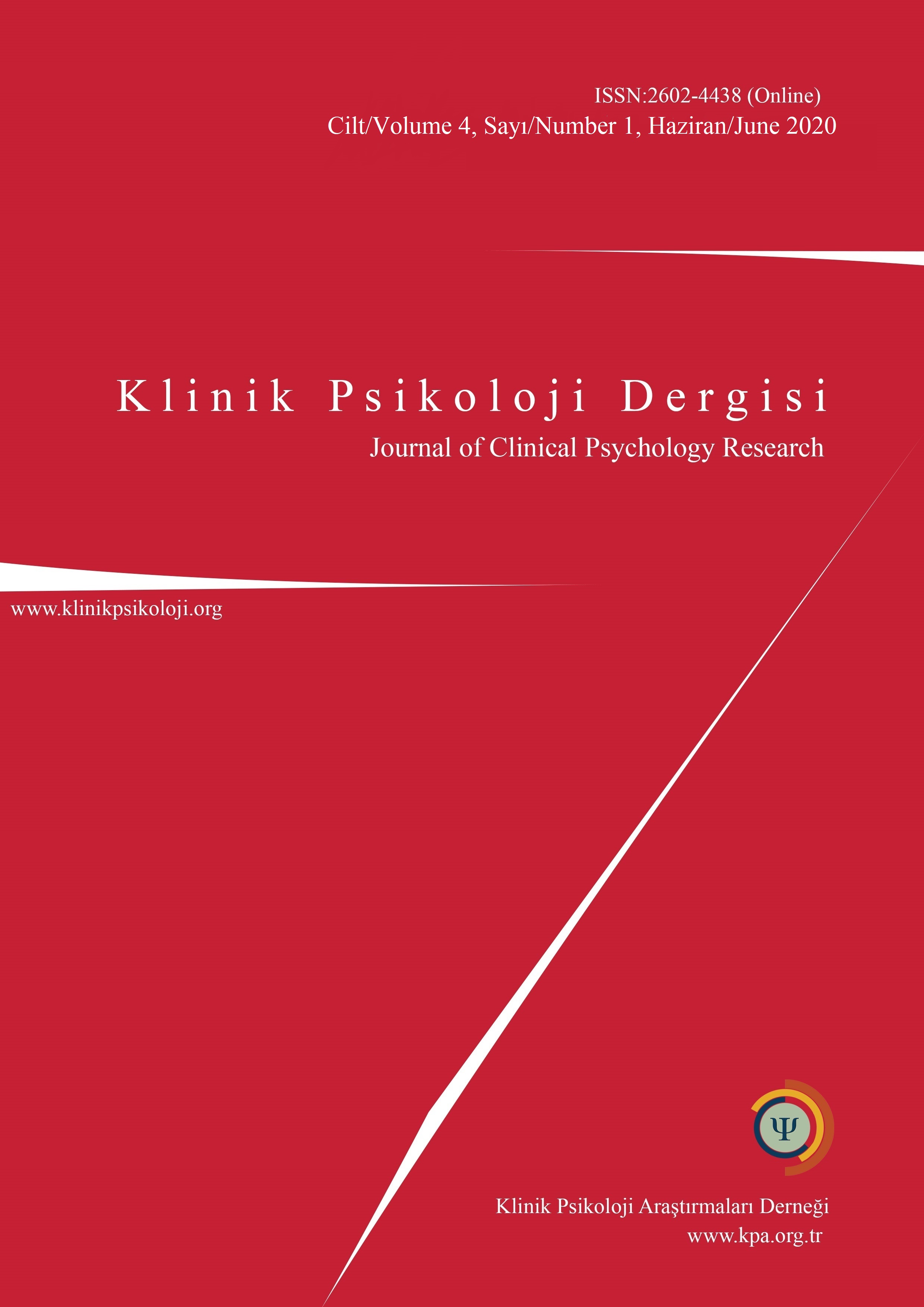Çocuk ve Ergen Ruh Sağlığı ve Hastalıkları Alanında Bir Klinik Gidiş Değerlendirme Ölçeği Türkçe Formu’nun (HoNOSCA-TR) psikometrik özellikleri*
The psychometric properties of the Turkish adaptation of the Health of the Nation Outcome Scales for Children and Adolescents (HoNOSCA)
Author(s): Sibel Halfon, Alev Çavdar, Demet KaraSubject(s): Developmental Psychology, Clinical psychology
Published by: Klinik Psikoloji Araştırmaları Derneği
Keywords: HoNOSCA-TR; Turkish adaptation; reliability; validity;
Summary/Abstract: The Health of the Nation Outcome Scales for Children and Adolescents (HoNOSCA) was developed as a routine outcome scale in England in the field of mental health to be filled out by clinicians. The reliability and validity of the scale were previously assessed on a small sample in Turkey. The aim of this study was to investigate the reliability and validity of the Turkish adaptation of HoNOSCA (HoNOSCA-TR) with a larger sample. The parents, teachers and therapists of 168 children, who received psychotherapy services at Istanbul Bilgi University Psychological Counseling Center, filled out the HoNOSCA-TR, along with Child Behavior Checklist, Teacher Report Form and Children’s Global Assessment Scale at the beginning and end of psychotherapy. The factor structure of the Turkish HoNOSCA-TR was investigated by exploratory and confirmatory factor analysis, which did not confirm the original factor structure of the scale; however, revealed three factors associated with children’s externalizing and cognitive problems, perceptive and somatic impairments, and emotional and social problems. However, the internal consistencies of the factors were found to below. Nevertheless, there was a statistically significant relationship between HoNOSCA-TR and other assessment scales and HoNOSCA-TR could differentiate patients based on diagnosis. Moreover, the inter-rater and test-retest reliabilities were good. The statistically significant difference between pre and posttest scores of patients pointed to HoNOSCA-TR’s sensitivity to change. This study supported psychometric properties of the Turkish HoNOSCA-TR by further validating the reliability and validity study that was previously conducted in Turkey. HoNOSCA-TR showed good concurrent and discriminant validity, interrater and test-retest reliabilities; however, it is essential to test its factor structure and internal consistency by further studies.
Journal: Klinik Psikoloji Dergisi
- Issue Year: 4/2020
- Issue No: 1
- Page Range: 1-11
- Page Count: 11
- Language: Turkish

